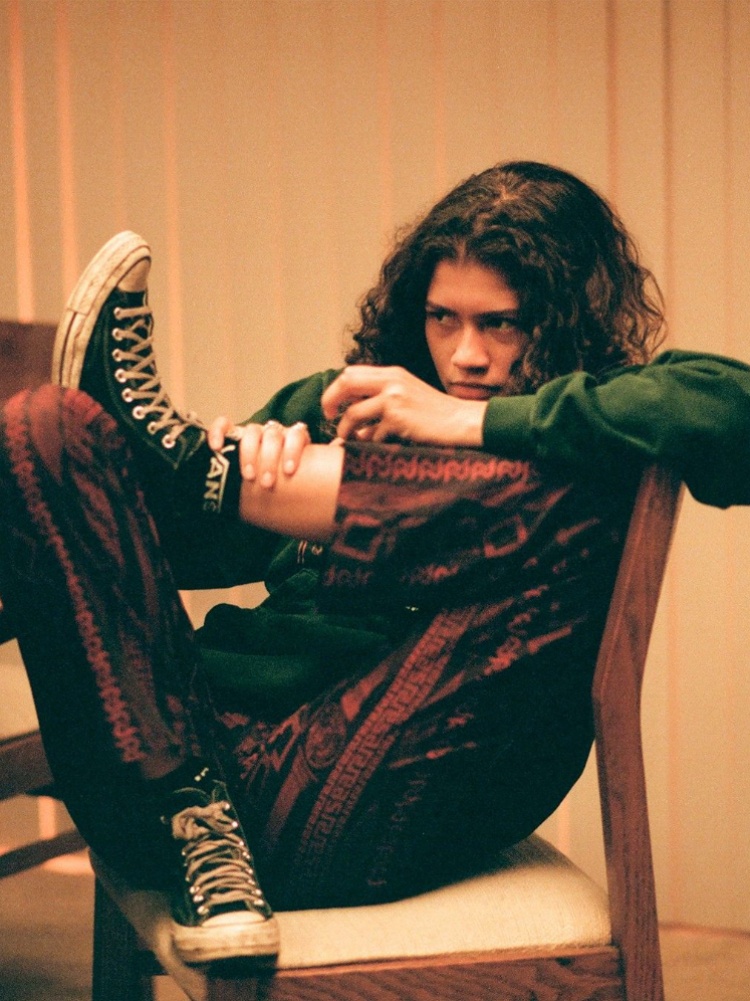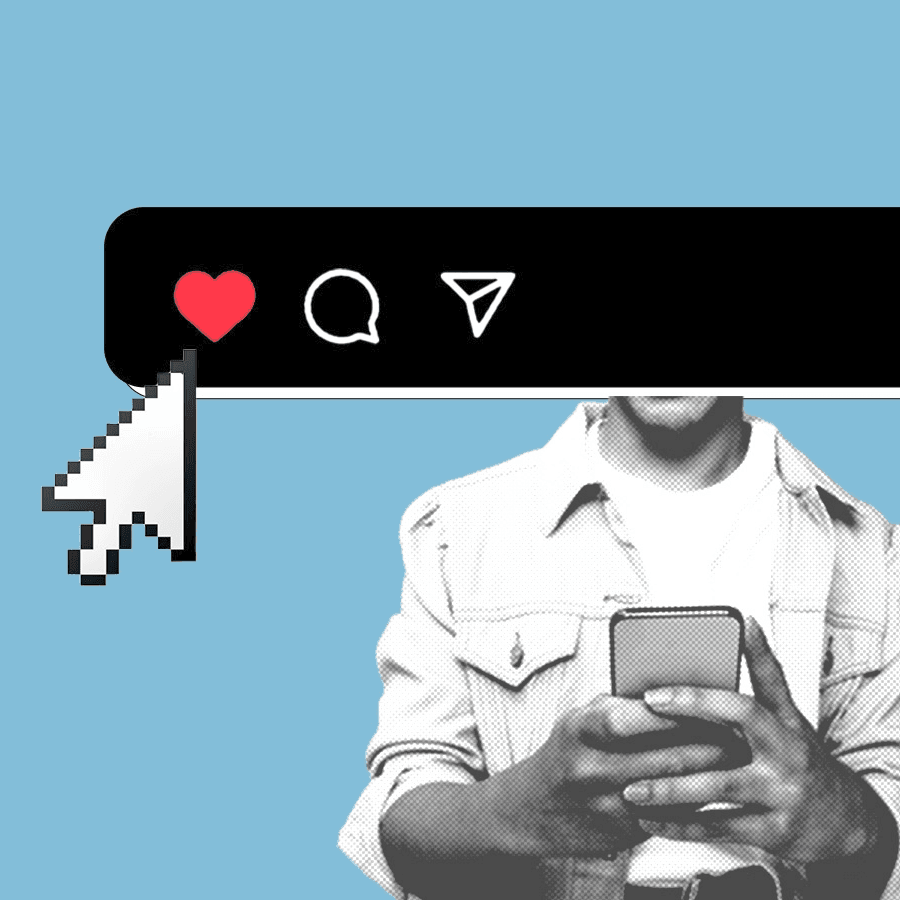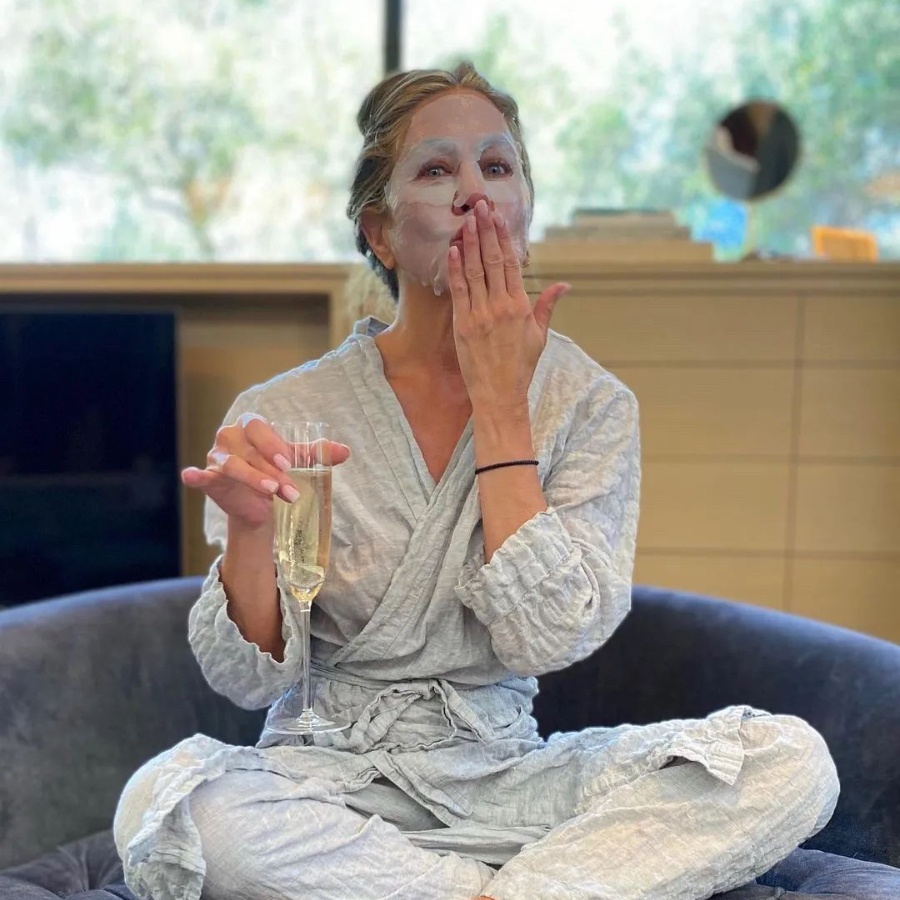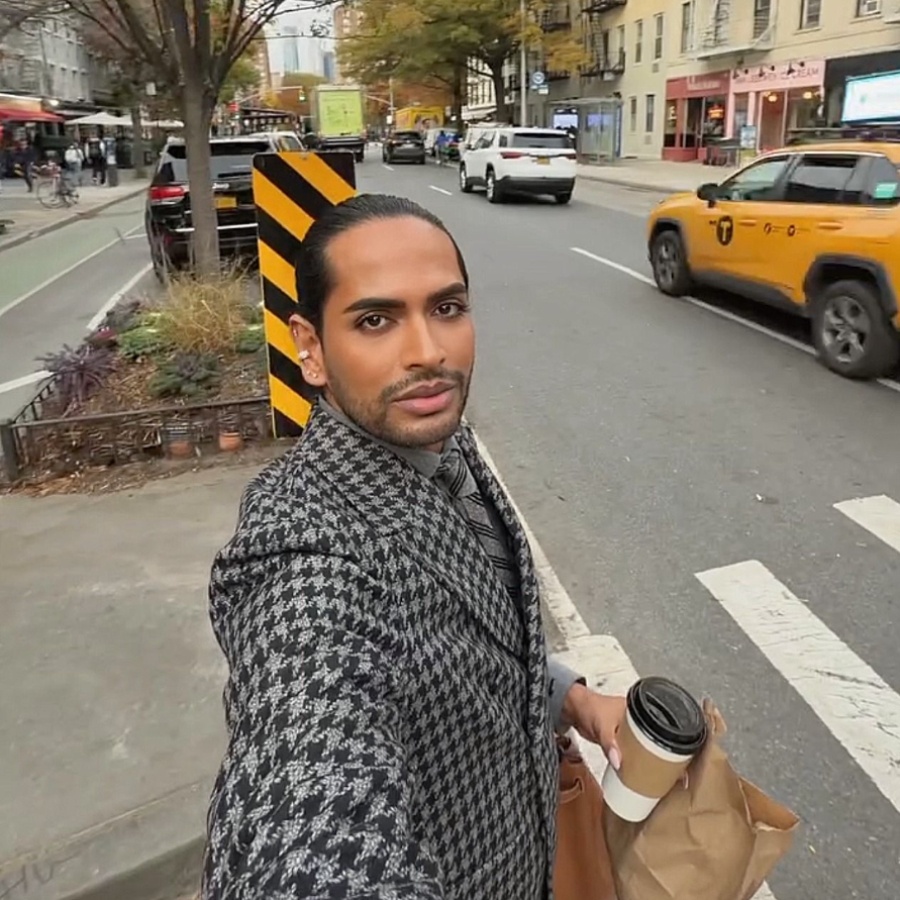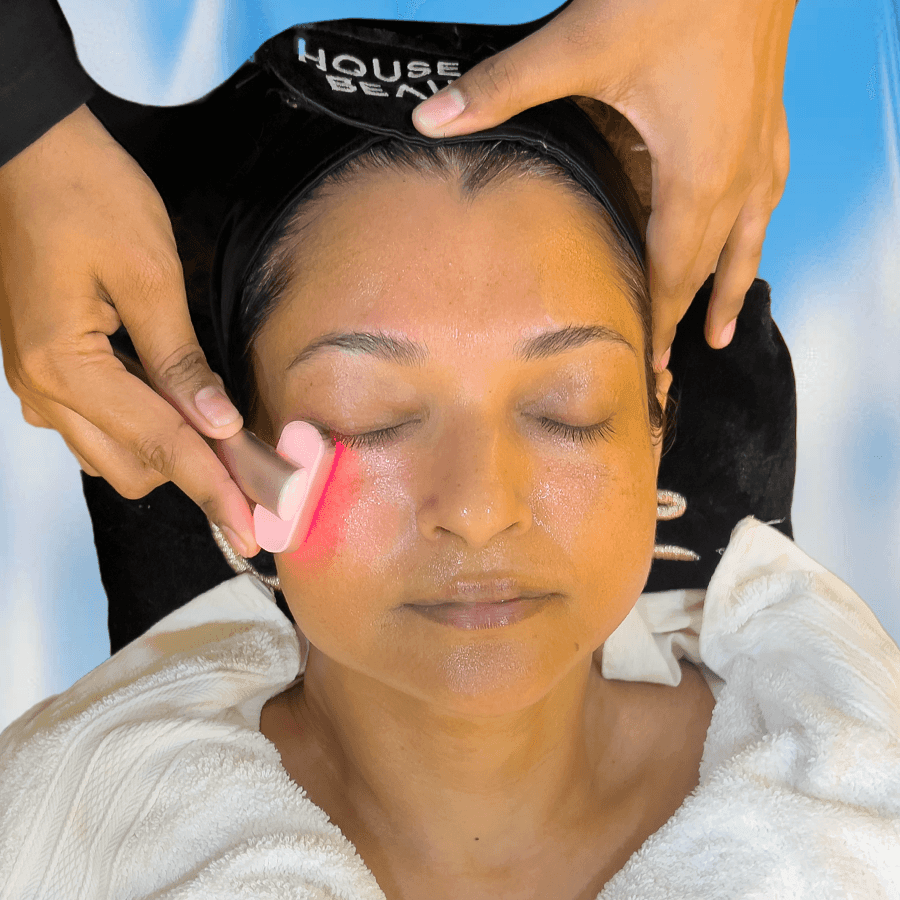It’s one of those times of the day/month/year. Your hair is greasy, your T-shirt has holes in it, your nails are chipped, and your skin is blotchy. Even a shower feels like too much of an effort. Stepping out of the house or even turning on your selfie camera is out of the question. For many Gen Zers, this period of hibernation—christened ‘ugly time’ by influencer Brenda Weischer—is fast becoming an essential periodic ritual. It is the time of rotting and wallowing in your apparent unattractiveness until, some days later, you emerge beautiful—the proverbial caterpillar-to-butterfly transformation.
Twenty-year-old Dev* says his ugly time is more akin to a house plant being watered or a snake shedding its skin. “This is the time to bedrot, not wash my hair, and consume media that shuts my brain off. It feels like I’m home in my pyjamas after school,” the Jaipur-based textile designer reveals. “My ugly time is rooted in my own wellbeing: I don’t open a front camera, I don’t message my friends, and I don’t post on social media.” While Dev has no qualms leaving his house to buy cigarettes or grab a coffee during ugly time (“I get to be more authentically me”), many of his peers refuse to do the same.
“Ugly time is between me and God. It’s intimate,” declares 26-year-old model Chaitanya Padhye, for whom this period consists of not doing haircare and skincare. Parnika Agarwal, 22, agrees. Based in London, the visual artist looks forward to returning to her home in Pilibhit, Uttar Pradesh, so she can religiously practise ugly time without feeling judged. “You know that Reddit post that says ‘Is it unethical to go outside if I’m ugly?’ That’s exactly how I feel,” she laughs, adding that there is much more pressure to look presentable in London than in her hometown. “When I was back home for 10 days, I couldn’t believe I didn’t have to do my makeup every day and could step out without taking a shower. I don’t have to try as hard, and it makes me feel liberated, because a schedule where you’re always trying to look good can get tiring after a while.”
This exhausting burden of having to look perfect at all times is reflected not only in the endless beauty products and routines that now oversaturate the global market but also in the popularity of aesthetics like hot girl summer, Barbiecore, brat summer.... The list goes on. Despite these trends being marketed as a chance to be unapologetically ourselves—whether in a bikini, a lime-green crop top, or a hot pink mini-skirt—the underlying expectation is to look attractive.
“Beauty trends are just another way to enforce how we should look, and by extension, how we should exist,” explains Zeynab Mohamed, who shares her thoughts on beauty and culture in her newsletter Face Value on Substack. “The constant cycle of new trends creates pressure to continuously mould ourselves to meet external ideals. Even trends that appear beneficial can end up reinforcing the same exhausting dynamics.”
Mohamed believes that the pressure to continuously look flawless is what ultimately contributes to beauty burnout, of which ugly time is a manifestation. Coined by Ellen Atlanta, author of Pixel Flesh (2024), the term ‘beauty burnout’ is defined as “feeling drained, financially strained, and emotionally overwhelmed by the endless pressure to conform to aesthetic ideals”.
While the pursuit of beauty was once supposed to be an act of joy and self-love, it now feels more like an obligation. It is why 22-year-old Nomi* believes that ugly time is a small act of resistance against the perpetual need to meet ever-evolving standards of beauty. “A few days ago, I left the house without any makeup for maybe the first time since I was in school,” the creative designer shares. “In the beginning, I felt a little uncomfortable, but as the day went on I felt so much better and more at ease in my Adam Sandler outfit and bare face.”
Dev adds that in an era hyper focused on exhaustingly never-ending self-care rituals, being ugly is the ultimate luxury. The obligation to always look pristine—with hydrated skin, shaved legs, and no-makeup makeup—is shoved down our throats by every piece of media and is so ingrained in us that it can be nearly impossible to escape the clutches of toxic beauty standards.
For those who struggle to practise ugly time without feeling self-conscious, Atlanta proposes a solution: push yourself to do one less thing. Try, for example, to not pluck your eyebrows or wax your upper lip. If you generally find it hard to leave the house without makeup on, take one item out of the mix: maybe don’t wear concealer or eyeliner every day. Small steps like these can help us feel more comfortable with not looking our perceived best at all times.
Mohamed reveals that she too has taken a huge step back from her usual beauty routine. “I think we’re in a moment where the pendulum is swinging between two extremes—total effort and total apathy—which I don’t think is working for anyone. Beauty should work for us, ideally. I’m trying to find that sweet spot where I’m enjoying my beauty routine but it’s not draining me.”
Mohamed is cautious of ugly time becoming a trend. “These rules also place unequal pressure on different people, so not everyone will have the freedom to opt out of beauty norms without consequence,” she points out. Padhye agrees that the movement does not need to become a massive social phenomenon but should remain more a private practice. “It’s very normal to want some ugly time, because no matter how self-motivated or self-caring a beauty regimen can be, there are always undertones of performance for society,” he elaborates, adding, “maybe ugly time should exit the limelight and just be something we all do for ourselves by ourselves.”
Perhaps in a time when what constitutes self-care is so convoluted, the best self-care is simply taking a break and allowing your skin and hair some relief from the many chemicals they are regularly lathered in. Perhaps, to take some time off is an act of self-love as much as it is an act of resistance. It is why most Gen Zers feel that they need ugly time to feel beautiful again. “It’s like lowering the baseline so that once it’s over, anything from there is a win,” Padhye notes. Dev agrees, “There is nothing like the feeling of posting a selfie on your Instagram story after ugly time and getting 50-plus likes.”
*Last names have been withheld for privacy
